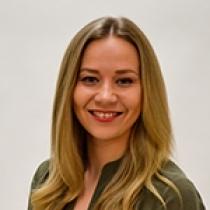Over a year ago, I was sitting on a plane on my way to Peru. In front of me was a year-long adventure in the home countries of coffee. I knew that I would get to experience many unforgettable moments, but I could not quite imagine how much I would learn and experience during that coming year. The coffee took me from Peru to Costa Rica, Nicaragua, Honduras and Guatemala as well as Tanzania, Uganda and Kenya in East Africa. I think that I left a small part of my heart in each of these countries.
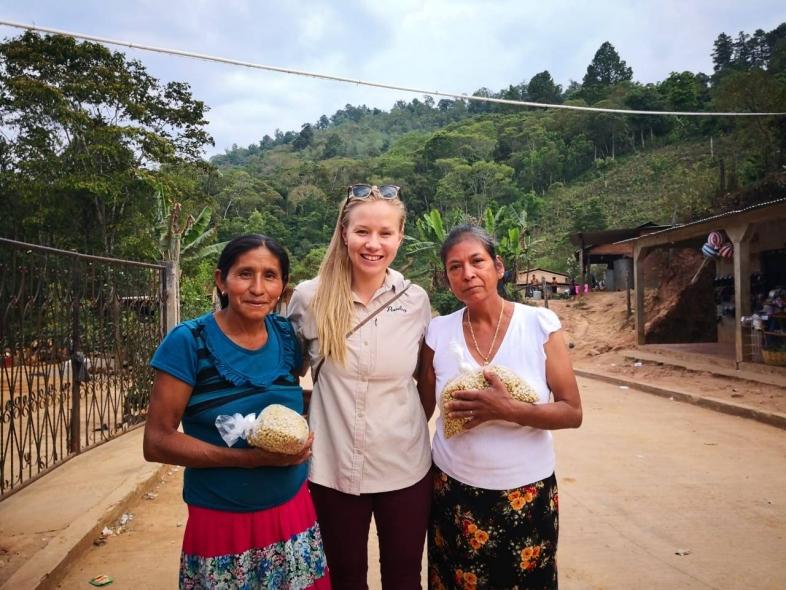
With coffee farmers in Guatemala.
I spent a year with one of our most important strategic partners, Volcafe. Together with them, we run partnership programmes to support sustainable and profitable coffee farming. My year-long absence did not leave my desk at home empty, since while I visited Volcafe, five different employees from different coffee cultivation countries visited our roastery in Helsinki. I was able to travel to the source of the coffee, while they came to learn more about the other end of the value chain and us coffee-loving Finns.
During the year, I was able to learn more about Volcafe’s sustainability programme, which supports coffee farmers by offering practical advice on how to improve the quality of the coffee, the productivity of the farms and production costs. I was able to experience and participate in this work at dozens of coffee farms in different countries and areas.
A livelihood at the mercy of the forces of nature
I was able to witness the forces of nature several times over the year. In Peru, I stayed at a coffee farm, and during my first night there, I was awoken by an earthquake. I was a bit startled, but luckily, nobody was injured. Over the year, I got to see more of different natural phenomena and the damage they can cause. At a coffee farm in Guatemala, I observed the activities of the Fuego volcano with great concern. First, the volcano produced a cloud of smoke, and eventually it erupted, with dire consequences. In Costa Rica, I witnessed how hurricane Nate brought several months worth of rain in just a few days. This caused landslides and left several coffee farming communities stranded for several days.
Extreme weather caused by climate change also affects the daily life of coffee farmers. For example, the rainy season might last longer than usual, or droughts can make farming difficult. The challenges affecting farmers are very regional, and we at Paulig therefore strive to adapt our partnership programmes to the needs of the local communities.
Travels involving varied work
I am often asked what I did during that year. I got to be part of a community: I stayed in the homes of coffee farmers, pruned trees and repaired buildings used as accommodation for seasonal workers. I participated in daily chores, brewed morning coffee and learned how to make the perfect tortilla. I also worked with local agronomists and learned a lot about plant diseases and best practices in the field. Mathematics was also needed to calculate the production costs of individual farms.
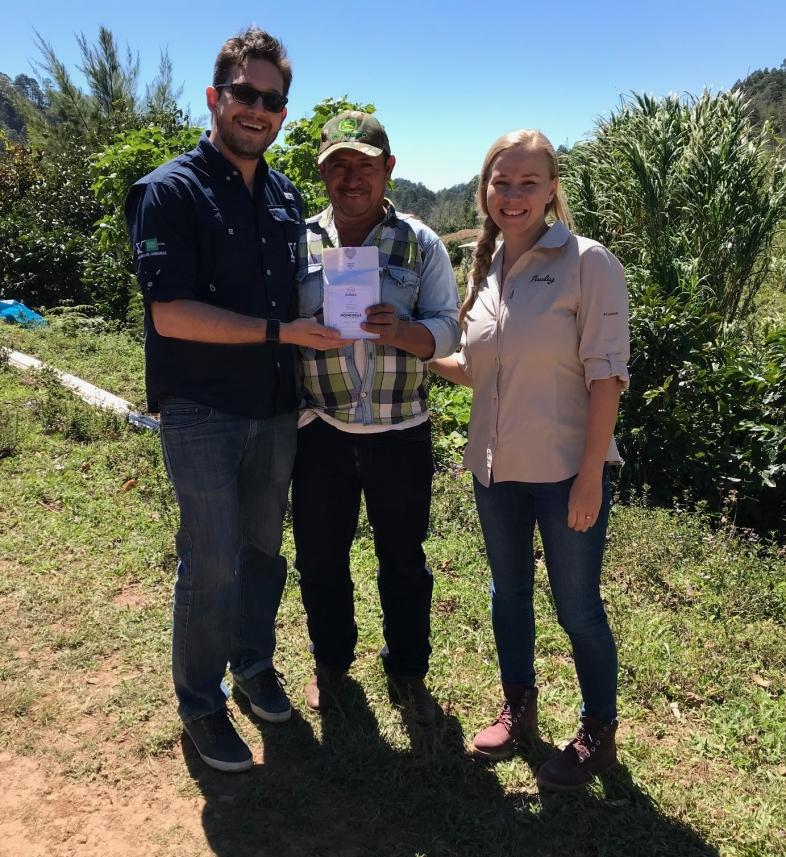
In Honduras together with our Volcafe partner Joshua and a coffee farmer.
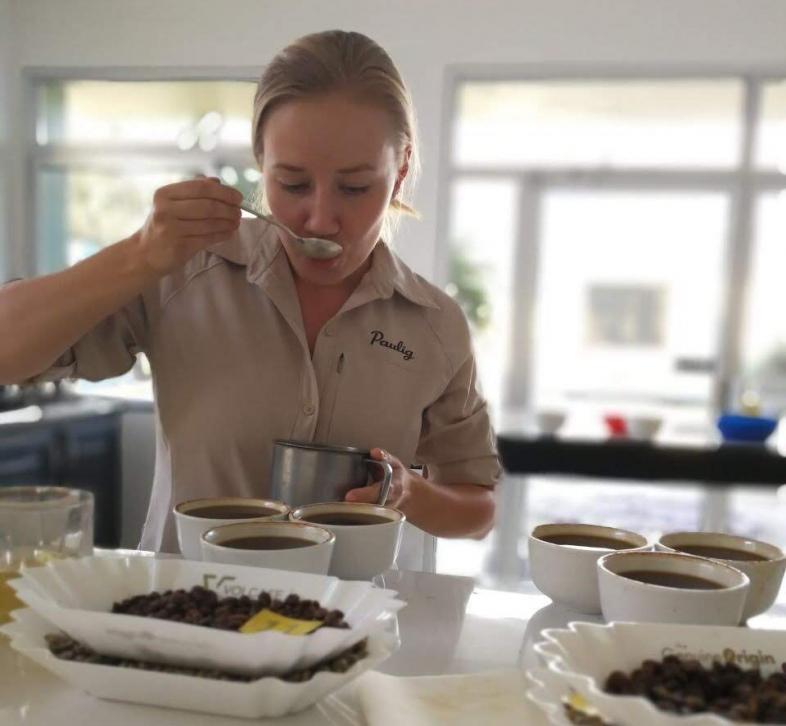
Cupping in Honduras.
The days went by quickly while I learned about different processes. After learning about the farms, I worked in a coffee processing facility where I received truckloads of coffee berries, checked the quality of the coffee based on samples provided by farmers, shoveled thousands of kilos of dried coffee beans and cleaned the water processing tanks of the coffee processing facility. During the year, I also conducted sensory evaluations of coffee, handled shipping documents needed for shipping coffee and conducted sustainability assessments for the partnership programmes. For example, I participated in the founding of a Paulig farmer community in Costa Rica. And when I had time to spare, I played football with the children and discussed formula 1 and the Finnish winter with the locals.
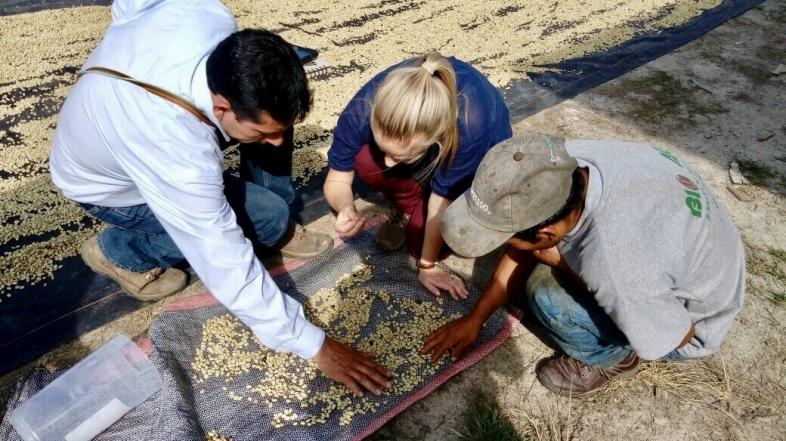
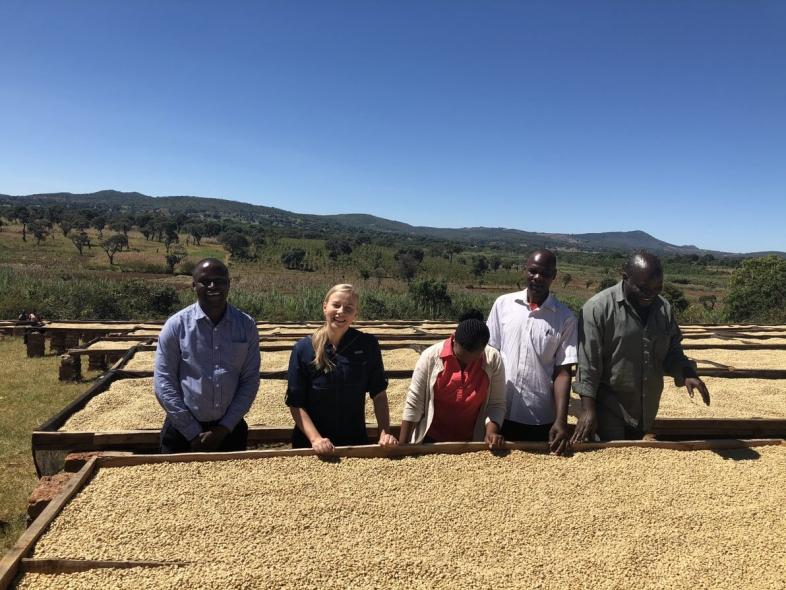
Drying the coffee in Tanzania.
One of my most memorable encounters was in Kenya near the end of the year. I visited the Kivunguru coffee farm, whose owners, Eileen and John, are very typical farmers – they only started focusing on coffee farming after their retirement. We were sitting in their living room having a cup of coffee when I noticed graduation photos of their children on the wall. I asked them if any of their children work with coffee. The answer was that they did not at the time, but I was delighted to hear that the children were, for the first time, considering continuing their parents’ work with coffee, as our partnership programme has made coffee farming economically profitable.
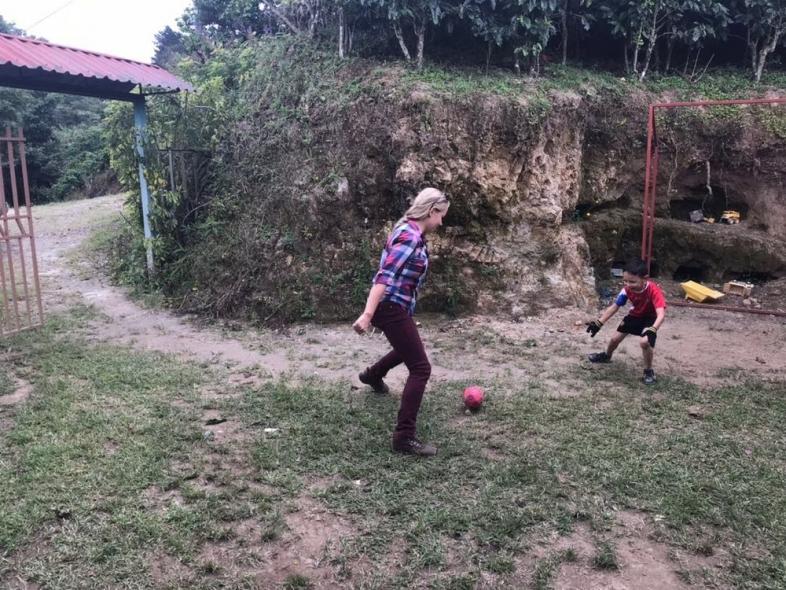
Playing football on a coffee farm in Costa Rica.
The return home
I still need some time to digest everything that I have learned, even though several months have already passed since my return. In-depth knowledge of the value chain of coffee forms the basis of our sustainability work here at Paulig, and I feel that I am now better prepared for developing this work together with our partners.
At the moment, my tasks include ensuring the availability of coffee for next autumn. We also continue and develop the inspections used in our partnership programmes. During 2019, all partnership programmes from where we buy coffee will be verified by a third or independent party. The visits to the home countries of the coffee will also continue, as they are an important part of my work. When travelling to the home countries of coffee, I also felt like coming to a second home.

A sunset in Costa Rica.
Read also:
A year-long trip around the countries of origin of coffee
Coffee from beyond snow-capped mountains
Entire community behind coffee
Snow in the Sahara and heavy rainfall in Costa Rica
Journeying with happy beans in Nicaragua
10.9.2018
